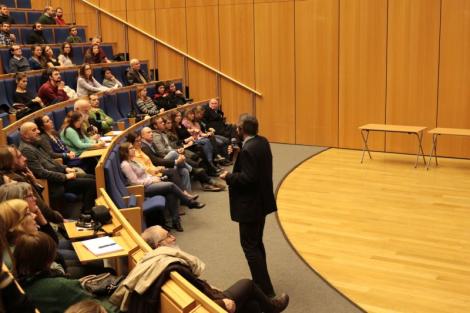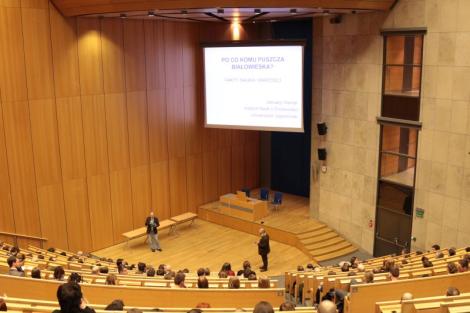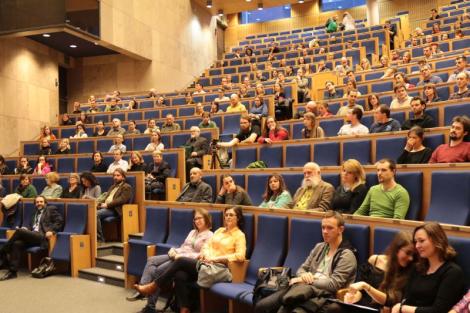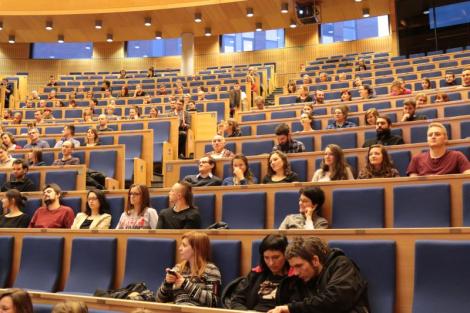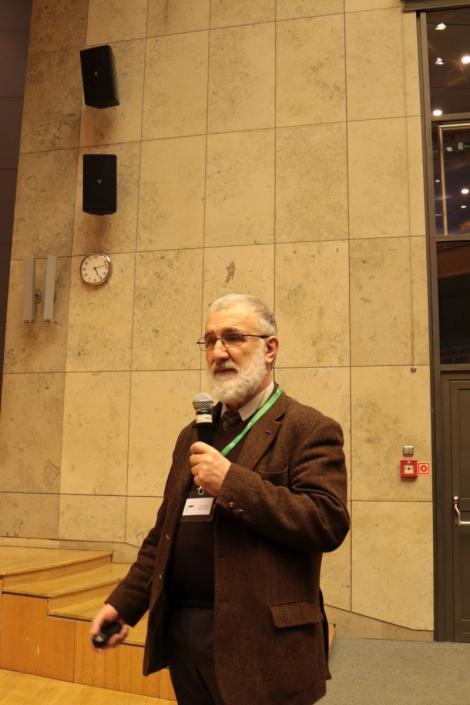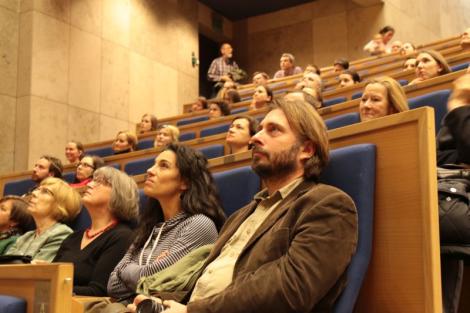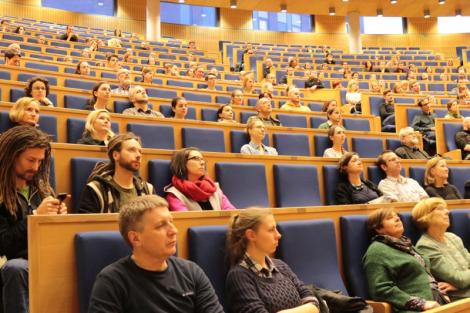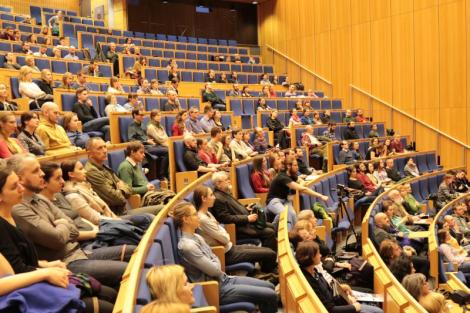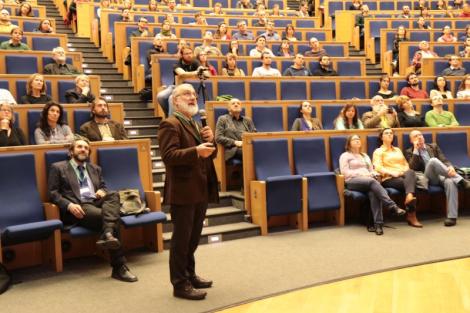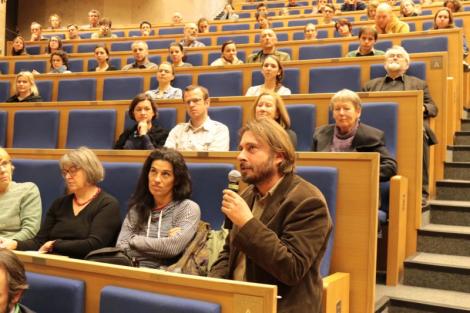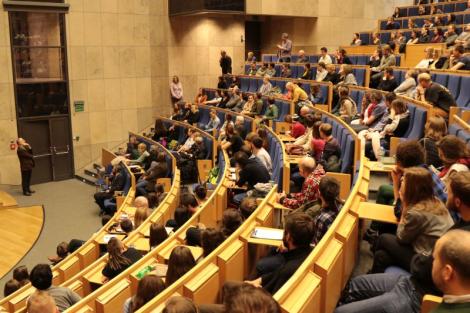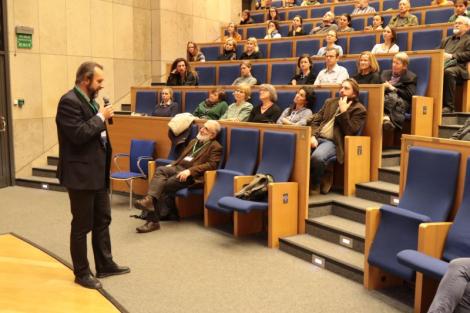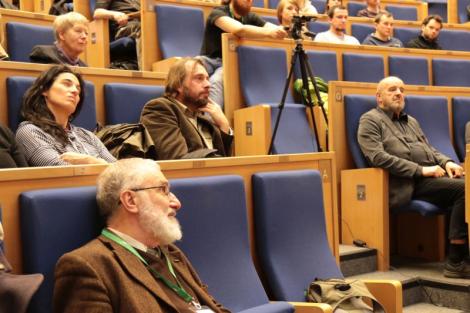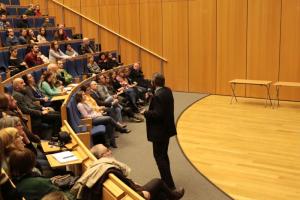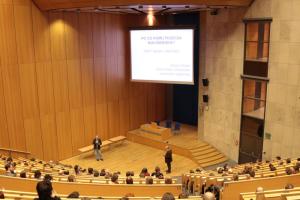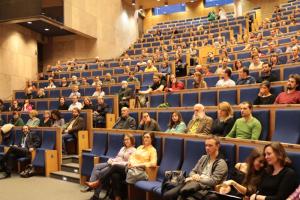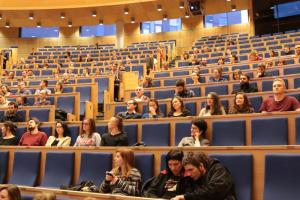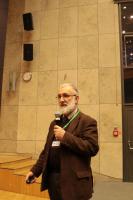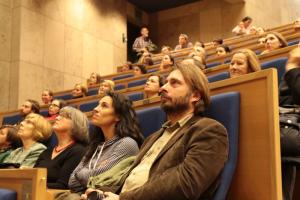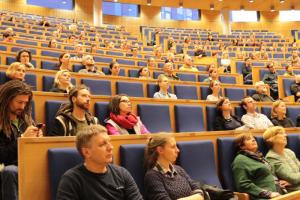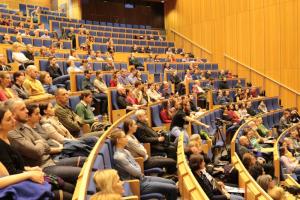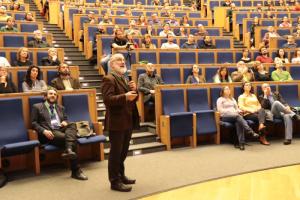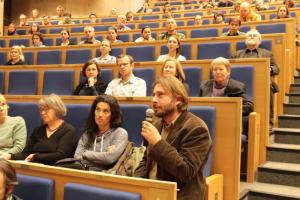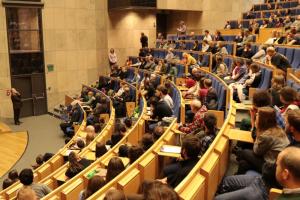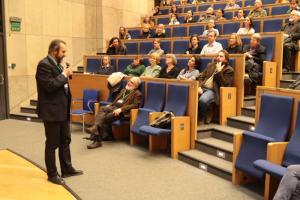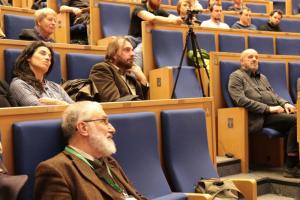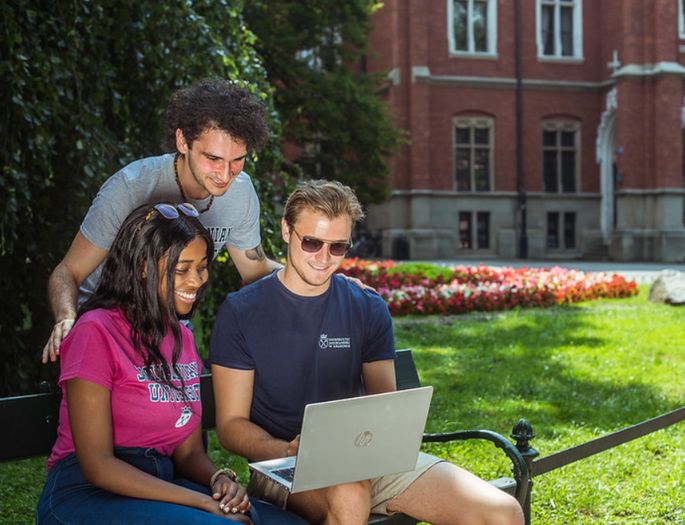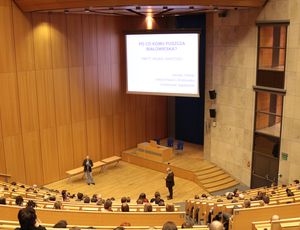
"The Białowieża Forest is one of the few remaining ecosystems that are still in an almost unspoilt state. If a sufficiently large area of it is protected, it can survive various disturbances" – argued Prof. January Weiner from the JU Institute of Environmental Sciences at a debate in the JU Auditorium Maxiumum devoted to the future of the Białowieża Forest, organised by the JU Student Society of Naturalists
The debate was organised in response to the latest developments related to the forest management. The Ministry of Environment is planning to radically increase logging in many areas, including nature reserves and stands of trees that are over 100 years old. The officials justify their decision on the grounds that parts of the forests are infested with woodworm. The plans have been harshly criticised by a number of public institutions, including the Białowieża National Park Council, and the Committee on Nature Conservation of the Polish Academy of Sciences, as well as NGOs, including Greenpeace Poland, the Geenmind Foundation, WWF Poland, and the Wild Poland Foundation.
According to Prof. January Weiner of the JU Institute of Environmental Sciences, things have not been going well in the forest for the last few decades and the current Minister of Environment is by no means the only one to have sparked public outrage. He also admitted that the discussed area is indeed infested with woodworm and the spruces are dying.
"Elementary knowledge from the field of nature conservation is absolutely enough to understand the issues that are subject to the ongoing debate. The minimum size of the protected area can be easily determined. The number of species an area can sustain depends on its size. This relationship is stronger for more isolated areas", argues Prof. Weiner.
During his lecture, Prof. Weiner also reminded the audience that the Earth no longer provides conditions for nature to function as it had functioned before humans transformed our planet. He argued there is no definition of a national park according to which it should function without any human interference. He also added that "The Białowieża Forest is one of the few remaining ecosystems that are still in an almost unspoiled state. If a sufficiently large area of it is protected, it can survive various disturbances."
The next speaker, Prof. Jerzy Szwagrzyk of the University of Agriculture in Kraków pointed to the fact that the Białowieża Forest has been subject to human activity since the late 18th century but it has never been primarily used as a source of wood, which makes it different from other forests. He also pointed out that the forest, which used to be managed as a whole, is now divided into many parts, managed pursuant to different rules. This makes the management process very difficult and is the most likely source of the present conflict.
Prof. Szwagrzyk believes that none of the sides in the conflict would like to destroy the forest, but each of them has a different vision of how it should function.
"Many people think that dead trees need to be removed as nature cannot cope with them, similarly to domesticated animals, which would most probably die without proper care. But in fact, wildlife does not benefit from healthy trees. What it needs are the dying ones, with lots of places to hide and live in. An ecosystem containing only healthy trees would itself be sick. We need to make the public aware of that. Without such education, the dispute over Białowieża Forest will continue", argued Prof. Szwagrzyk, adding that it would be best if the national park covered the entire forest.
After the lectures, there was a discussion involving the audience. One of the participants was Adam Wajrak, a journalist and wildlife expert. He argued that the Białowieża Forest should remain intact, since this is the essence of a primeval forest. Death and decay are an integral part of every ecosystem.
"We have expelled death from the public space. When we walk into a forest, the omnipresence of death makes us feel uneasy. In my opinion, the seriousness of the conflict lies in the fact that recent decades have seen the emergence of a social movement of people who would like to enjoy wild woodland. There are few such places in Poland, as most forest areas are either subject to human intervention or enclosed within national parks. The forestry officials have failed to understand that not only hunters and foresters are interested in visiting forests", says Adam Wajrak.
Białowieża Forest is the only remaining primeval forest in the European Lowland Area. Recognised by UNESCO as a World Heritage site, it covers a total area of 308 thousand hectares in Poland and Belarus. The Białowieża National Park covers one sixth of the Polish part of the forest.


